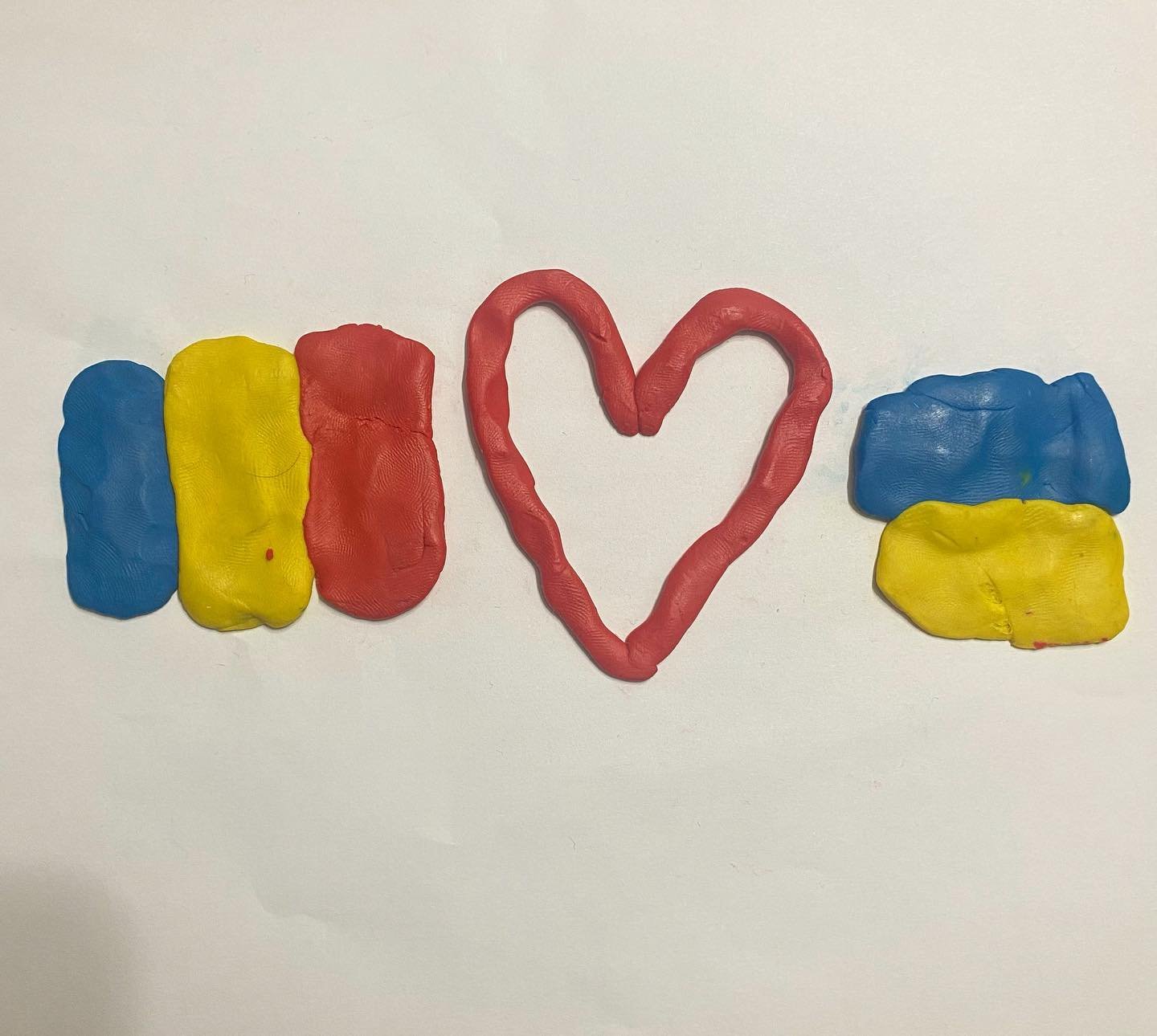A small country with a big heart
by Paula Erizanu
Anna Litvinova is an artist from Odesa painting disability. Living in a wheelchair, she fled her hometown during the first week of war together with her husband, who is also in a wheelchair, and her elderly parents. They ended up in a Moldovan village near Anenii Noi, where they are hosted by a family. "They have been very welcoming, they have even found a bed that changes heights from a relative working in a hospital," she told me over the phone.
Since Russia's full scale invasion of Ukraine, more than 370,000 Ukrainians have crossed the Moldovan border. About 100,000 Ukrainian refugees have decided to stay in the small country, half of them children, increasing Moldova's population by 4%. Relative to its size, Moldova has by far the highest refugee per capita in Europe.
Many Moldovans have family and friends in Ukraine. With Russian troops illegally based in Transnistria, we also fear the escalation of violence on our territory. Indeed, on February 24, my grandmother in a northern Moldovan village, like many other Moldovans, woke up to the sounds of shelling in Ukraine. The noise of explosions has persisted over the past month all the way to the capital city Chișinău. As I look at images of blocks of flats being destroyed in Mariupol or Kyiv, I can't stop thinking how much these buildings resemble those in my hometown Chișinău. "Ukraine is the guarantor of peace in Moldova," said Miroslav, a Moldovan I met at a London protest in solidarity with Ukraine. When I approached him, he was on the phone to his sister, who, like his aunt, is hosting refugees in Cahul, southern Moldova. Indeed, more than three quarters of the refugees are hosted by individual families, the rest are in government provided accommodation.
Since the start of the war, Moldovans have donated £600,000 to the government emergency fund for refugees. Thousands of volunteers from Moldova for Peace, an initiative helping the Moldovan government coordinate the refugee influx, Evangelist and penticostal churches, as well as a plethora of other charities and individuals have mobilized to help Ukrainians fleeing war. My Facebook feed is full of people hosting or helping transport refugees, and their stories.
But while Moldovans have opened their homes during the first month of war, they are also being hit by the economic effects of the conflict. Before the war, Moldova imported more than 10% of its food from Ukraine — products that were more affordable for the poor. The instability also puts pressure on Moldova's already frail economy. "We're full, Moldova is full," Constanța Dohotaru, who volunteers for Moldova for Peace, told me. Dohotaru herself has hosted six refugees in her small flat. She has also been helping set up an app linking Ukrainians with Moldovans able to provide accommodation, transport or donations, in order to make the support more sustainable.
"Physically, emotionally and psychologically, I'm tired," Arcadie Cotruță wrote on Facebook last week. Having lived in Kyiv for years, Cotruță returned to his hometown, Chișinău, with his three children, after waking up to the sound of bombardments on February 24 — his wife, who was abroad, joined them in Moldova twelve hours later. "I can't throw myself at every phone call to 'save' every single person; I see how others lose strength and can't volunteer any longer (they have to return to work), and my friends in Ukraine who were not able to leave, run out of money." And yet, Cotruță managed to help dozens of his Ukrainian friends to reach safety, and sent two buses of food, medicine and clothes to Vinnytsia. Together with his wife Irina Zaretskaya, they are also organizing activities for Ukrainian children in Moldova.
As every eighth child in Moldova is now Ukrainian, a lot of the most moving stories come from them. Here's one: six-year-old Mira, from Odesa, has been drawing the Ukrainian flag everywhere since she arrived in Chișinău on 2 March. One of her works saw another flag pop up: Moldova's tricolor, next to a heart sign, and Ukraine's blue and yellow flag — Moldova loves Ukraine, it reads.
